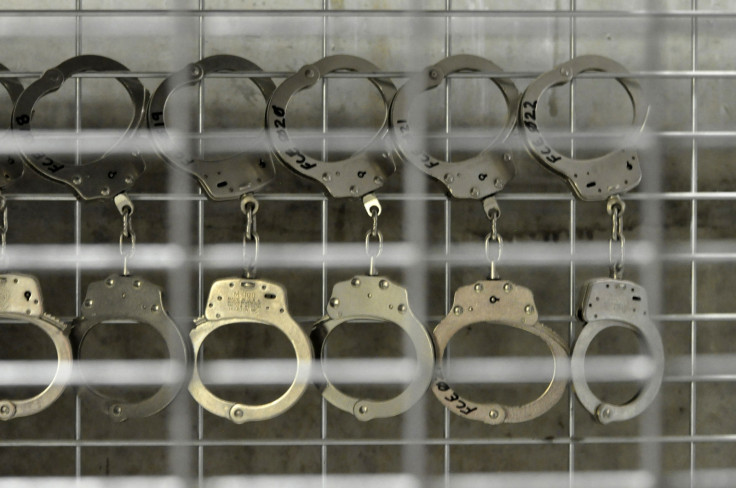Dark Web drug ring ItalianMafiaBrussles's leader extradited to US
Filip Lucian Simion was arrested in a joint effort by the Belgian, French, Romanian and US authorities in May 2016.

A collaborative operation of law enforcement authorities of four countries few months back had led to the arrest of four members of a Dark Web drug ring. And, now two of them have been extradited to the US to face money laundering and drug trafficking charges.
Twenty-three-year old Filip Lucian Simion, the alleged leader of IMB (ItalianMafiaBrussels) and 25-year-old Leonardo Cristea, another member of the ring, were arrested in May 2016 and are currently awaiting prosecution in the US.
The arrests of the alleged ecstasy ring were coordinated by the Europol and the FBI. Additionally, the collaborative effort of the Belgian, French, Romanian and US authorities saw the 4 criminals, suspected to be a part of an illegal underground organisation IMB, arrested.
IMB is suspected to have sold drugs via the once-popular but now-defunct dark web marketplaces Silk Road and Silk Road 2.0. Meanwhile, Ymran Djavatkhanov and Andy Nestor, two other suspected IMB members were apprehended in Brussels, Belgium.
The US Department of Justice announced, "On May 3, 2016, in a joint U.S./European enforcement action, law enforcement dismantled the ItalianMafiaBrussels Drug Trafficking Organization (DTO), arresting ten defendants during early morning raids in Bruges, Belgium and surrounding areas. The extradited defendants, Filip Lucian Simion and Leonardo Cristea, were arrested simultaneously in Bucharest, Romania. The remaining defendants, including two of the defendants named in the U.S. Indictment, will be prosecuted in Belgium."
IMB and its operations
IMB functioned as an underground criminal organisation that "operated online" primarily to sell MDMA to customers in the US and Canada. According to court documents, IMB used encrypted communication services and operated out of Tor-based online dark web marketplaces. Additionally, the criminal organisation only accepted bitcoin payments from customers.
How IMB was brought down
The DOJ said that the investigation into IMB began in July 2013, after US customs intercepted over 60 grams of MDMA sent from Belgium to an individual in Boulder, Colorado. Court documents reveal that the recipient of the package agreed to cooperate with the authorities and divulged that he had purchased the ecstasy from IMB.
US law enforcement officials also confiscated similar drug packages from individuals in New York City and were eventually able to obtain access to the suspected customers' dark web marketplace accounts and the messages sent by IMB.
In the meantime, between February and September 2014, Belgium authorities intercepted other IMB packages, which contained fraudulent invoices posing as those from legitimate businesses. The US and Belgian authorities then collaborated to investigate other IMB packages and online communications. Investigators uncovered that the IMB online account operator was fluent in English and Dutch and appeared to be familiar with Romania as well as the Belgian Federal Judicial Police (Federale Gerechtelijke Politie, or FGP). The IMB member also revealed that he lived near Brussels.
The FGP, in an unrelated investigation searched properties belonging to Simion, which later enabled authorities to link the suspect to the IMB. The FGP and the Romanian Federal Police then began physically tracking Simion and his alleged accomplices. Investigators uncovered that the gang was making use of encrypted messaging apps inlcuding Signal, RedPhone and WhatsApp to communicate with each other.
In addition to the collaborative investigations into the suspected members of IMB, authorities also gained essential information about the organisation after the FBI shut down Silk Road and Silk Road 2.0 in 2013 and 2014, respectively. The collaborative efforts of the law enforcement authorities of the four countries bore fruit in May when they arrested the suspects.
The two extradited suspects, Simion and Cristea face a possible 20 years maximum prison term, if found guilty.
© Copyright IBTimes 2024. All rights reserved.






